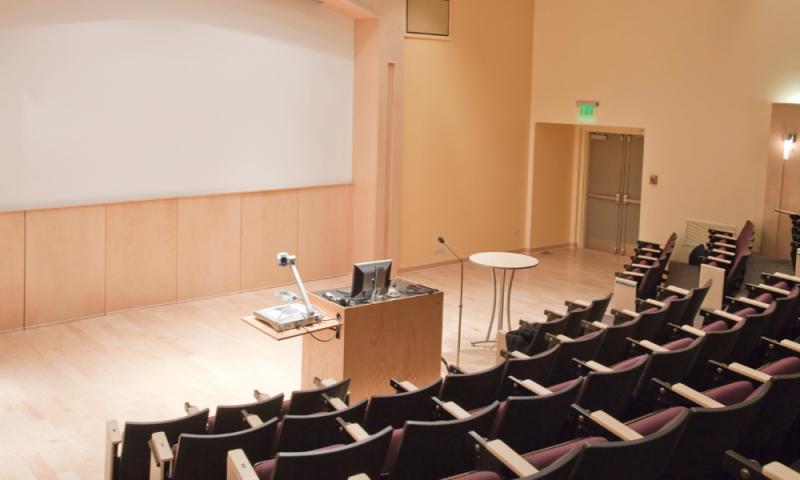LETTER | When lecturing is a 'syiok sendiri' exercise
LETTER | Syiok sendiri is a colloquial expression commonly used in Malaysia and Singapore to mean “enjoying oneself”, such as when giving lectures by rolling out impressive facts and figures to enthral the audience.
This has been common practice not just in universities but also in seminars meant for training industry personnel, such as those in the travel sector. However, little learning takes place when training is lecturer-centred instead of learner-centred.
The contents of most programmes may look good on paper but the quality of training hinges more on trainers, and their competency varies according to experience, knowledge and skills, and also the ability to verbalise the contexts and explain underlying issues.
Attendees most interested in learning are those who paid from their pocket but not those who attend just to obtain a certificate such as the Travel and Tours Enhancement Course (TTEC) needed to renew their company licence with the Tourism, Arts and Culture Ministry.
Since the outbreak of Covid-19, almost all these courses have been conducted online, rendering trainers to lecturers with minimal interactions. While participants’ laptops or smartphones may remain connected, many will stay silent throughout or are just not paying attention.
Not only that, they hardly ask any questions about the contents of the course. They also do not seek answers to the many challenges and problems they face in their business. This is despite being told that they could say the troubles are faced by a friend in the same business.
I have been conducting TTEC since it was introduced in 2012. After conducting the latest course last Tuesday, I decided that I had had enough and proceeded to cancel all my future engagements for the rest of the year.
Over the past 25 years, I have been a part-time trainer for the Tourism Ministry’s courses, starting in 1999 with Malaysia Host, a world-class training programme distributed globally by American Express that originated from Canada developed for the 1986 World Exposition in Vancouver.
It was initially called Canada Host and then named after the countries where training was held, such as Australia Host, Singapore Host, and Malaysia Host. It was later modified to Mesra Malaysia and revised several times. Under the original format, training was highly effective.
This is because attendees were required to answer 10 objective test questions and participate actively in class, as half of the scores were awarded by the trainer, and attendance certificates were awarded only to those who passed both the written test and involvement in discussions.
But in other seminars, trainees interested only in obtaining an attendance certificate would not try to learn as much as they can. However, they can easily be spurred to put in more effort if told in advance they are required to sit for an objective test and hints will be given during training.
Learning is most effective when all the slides to be presented during training are forwarded in advance to the participants so that those interested can study, prepare and pose intelligent questions, and engage in more fruitful discussions with the trainer and other trainees.
While lecturing is largely monologue, training uses dialogue. What is spoken by trainees is equally if not more important than the trainer, who mostly shares knowledge that can be found online. Imperatively, trainers must be able to assess answers and comments made by trainees.
When what was answered or said by trainees was wrong, trainers must correct them, otherwise participants may accept it as the truth. When replies or comments are weak or unclear, trainers must strengthen them by explaining, clarifying, and proposing better answers or solutions.
Hence, trainees must speak up and receive confirmation if what they said was correct and to be corrected on what was wrong. But sadly, most will remain quiet, no thanks to our poor education system, as most students learn by rote or through indoctrination and will remain sheepish.
When they cannot recall what they know to provide an answer, they may think for one but would be too afraid to speak their mind, fearing their reply would be wrong and feel ashamed. Their ego stops them from learning, made worse when there is little desire or no hunger to learn.
Their knowledge is superficial if they cannot describe clearly what they think they know in their own words. Most personnel in the travel sector cannot differentiate between tourists and visitors, ecotourism and nature-based tourism, and responsible tourism with sustainable tourism.
Such information including official definitions is available online but they are only useful for students. Industry players must understand them well enough to apply in their business. If one were to Google tourism, the definition is more like mumbo jumbo to travel trade personnel.
Training programmes are normally lined up for Visit Malaysia Years as in 2007 (Mesra Malaysia), 2014 (We Are The Host), and 2020 (Mesra Malaysia). In normal customer service courses, a lot of information and a long list of dos and don'ts are shown but are mostly forgotten soon after.
It will be more effective if trainees are required to share their best and worst experiences and how they could do even better the next time. This will allow other participants to ask questions or share opinions, and everyone can learn from actual experiences instead of discussing theories.
While lectures can get boring, training is usually fun for all. Many leading universities around the world have stopped doing lectures and replaced traditional lecture theatres or halls with large classrooms using equipment and furniture that can be easily reconfigured to suit various groups.
The views expressed here are those of the author/contributor and do not necessarily represent the views of Malaysiakini.
RM12.50 / month
- Unlimited access to award-winning journalism
- Comment and share your opinions on all our articles
- Gift interesting stories to your friends
- Tax deductable
